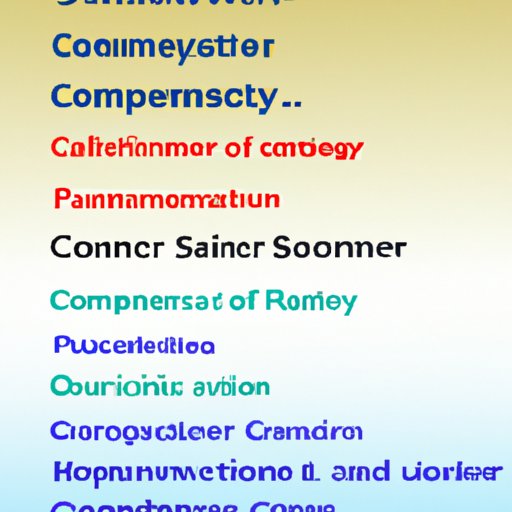Introduction
Consumer science is a field of study that looks at how people interact with products and services. It helps businesses understand their customers’ needs, wants, and behaviors, which can then be used to create better products and services. Consumer science is an interdisciplinary field, drawing from psychology, sociology, economics, marketing, and other related fields. As such, it offers many benefits to businesses and individuals alike.
The History and Evolution of Consumer Science
The roots of consumer science can be traced back to the early 1900s when scholars began to explore the relationship between consumers and their choices. Over the years, this field has evolved to encompass a wide range of topics, including consumer behavior, product design, market research, and quality assurance. This evolution has been driven by advances in technology, increased competition among businesses, and changes in consumer preferences.
During the 1950s, the study of consumer science gained traction as researchers started to focus on understanding the motivations behind consumer behavior. This was followed by a shift towards applying these findings to improve products and services. In the 1960s, the term “consumer science” was first used to describe the field, and since then its scope has continued to expand.
Consumer Science in Action: Real-World Examples
Consumer science is used in a variety of industries, including food production, retail, and manufacturing. In the food industry, for example, consumer science is used to identify trends, develop new products, test recipes, and measure customer satisfaction. Retailers use consumer science to analyze customer data and optimize their marketing strategies. Manufacturers use it to create efficient production processes and ensure high-quality products.
Consumer science is also used to assess the impact of advertising campaigns, evaluate pricing strategies, and identify potential markets. For example, the American Marketing Association conducted a study that found that personalized ads were more effective than generic ones. This type of research is essential for businesses to stay competitive in today’s market.

Common Careers in Consumer Science
There are a number of career paths available for those interested in pursuing a career in consumer science. Popular positions include market research analysts, product development managers, and quality assurance specialists.
Market research analysts are responsible for collecting and analyzing customer data to help businesses make informed decisions. They use a variety of methods, such as surveys, focus groups, and interviews, to gain insights into customer needs and preferences. Product development managers oversee the creation of new products and services to meet customer demands. Quality assurance specialists work to ensure that products and services meet specified standards.

Consumer Science Education: What You Need to Know
A career in consumer science typically requires at least a bachelor’s degree in a related field, such as marketing, economics, or sociology. However, some employers may prefer candidates with a master’s degree or higher. There are a number of online courses and certification programs available to help students gain the necessary skills and knowledge to enter the field.
For those interested in pursuing a career in consumer science, there are a number of resources available, including professional organizations like the American Marketing Association and the International Council of Shopping Centers. These organizations offer networking opportunities, job postings, and educational resources.
Conclusion
Consumer science is a field of study that examines how people interact with products and services. It draws from multiple disciplines, including psychology, sociology, economics, and marketing. The field has evolved over time, and is now used in a variety of industries to understand customer needs and improve products and services. Common careers in the field include market research analysts, product development managers, and quality assurance specialists. A bachelor’s degree is typically required, but there are a number of online courses and certification programs available to gain the necessary skills and knowledge.
Overall, consumer science is a dynamic and rewarding field that offers many benefits to businesses and individuals alike. With its growing importance, now is an excellent time to pursue a career in the field.
(Note: Is this article not meeting your expectations? Do you have knowledge or insights to share? Unlock new opportunities and expand your reach by joining our authors team. Click Registration to join us and share your expertise with our readers.)
